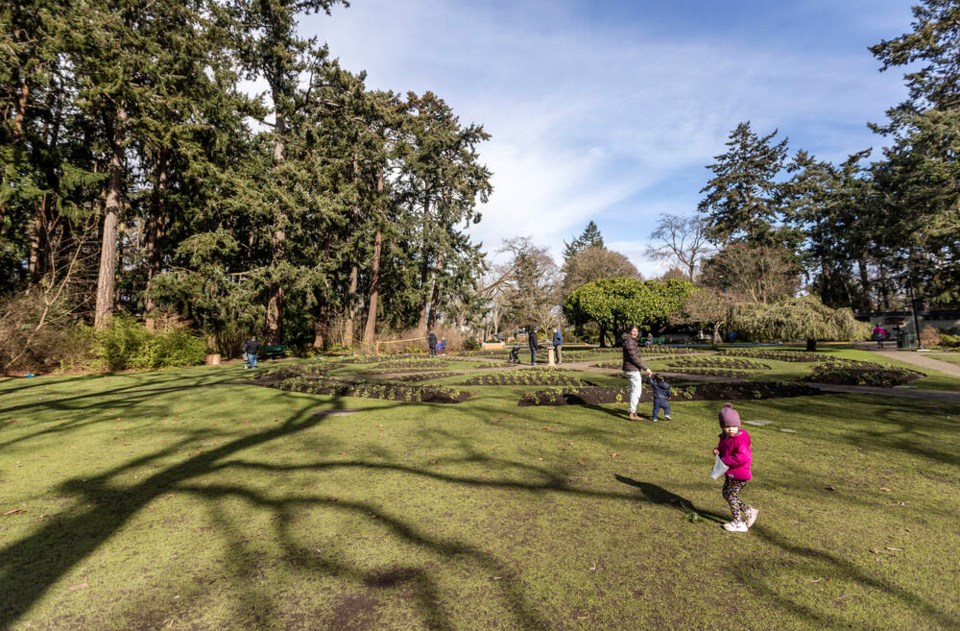Court correct on Beacon Hill Park
The B.C. Court of Appeal has ruled that the trust governing Beacon Hill Park does not permit overnight campers.
A great big, huge thank you goes out to them for making the right decision.
Diane Ball
James Bay
Ambulance service was excellent
Over the past several months there has been a lot of criticism, at a variety of locations across the province, of the ambulance service as well as the health services.
It seems that negative reporting generally gets more media attention than positive. A recent experience that my wife and I had in these areas was a very positive one.
I recently had to phone for an ambulance for my wife. Within minutes of making the call, a fire truck and ambulance arrived at our home and my wife was transported to the emergency department at our hospital.
She was immediately admitted into emergency, where a variety of tests were performed, and then remained overnight in the ICU, where further tests were done.
We have nothing but praise for everyone that was involved. The service was excellent and my wife also enjoyed the meals at the hospital.
Terry Hluska
Campbell River
Lots of history behind B.C. flag
“How British is British Columbia?” is like asking how Spanish is Spanish Banks or how French are three creeks, a river, two mountains and a village?
While Vancouver Island was proclaimed a colony in 1849, the mainland was shared between the Hudson Bay Co. and the American Northwest Co. The northern section was called New Caledonia and the Southern portion the Columbia Department/District.
To settle U.S. claims, the Treaty of Washington set the border on the 49th parallel and the HBC moved its operations on the Columbia River to Fort Victoria with jurisdiction over the mainland.
After the gold rush, the United Kingdom parliament moved to prevent any HBC claim to the resource of the mainland and established the Crown colony in 1858.
The name B.C. severed the area from the southern Columbia Territory. Additionally, while the B.C. flag was adopted in 1960, a version of the current state of Hawaii flag with the Union flag was flown in 1816.
Gerald W. Pash
Victoria
A new name for B.C., longer plate needed
I’m all for changing the name of our province to something that more accurately suits its current state of affairs.
With this in mind, I suggest No Doctors, Homes Only For The Wealthy, Exorbitant Gas Prices and Crappy Ferry Service as the new name for our province. Doubt it would fit on a licence plate though.
Len Dafoe
Nanoose Bay
Be honest, now: Would you use E&N?
Rather than asking people whether passenger service should be restored to the E&N railway, pollsters should ask whether they would actually use the service if it was restored.
Jamie Alley
Saanich
Think buses, not rail, to ease the traffic jams
Re: “Regardless of rail plans, Island needs frequent, low-cost bus service,” commentary, Feb. 22.
A couple of points that stick out.
Thirty-two buses a day from the West Shore is totally inadequate as a transit service if we are to get serious about reducing the Trans-Canada rush hour jams — now lengthened back to McCallum in the morning after the $100-million McKenzie boondoggle.
One hundred double-decker buses in well-structured routes around the Capital Regional District could remove 10,000 drivers per rush hour trip. Travelling in designated bus lanes on the Trans-Canada and major arteries, they could still leave the single lane adequate for the remaining motorists. That is the magnitude of the problem.
As is described, the E&N does not have the capacity to move large numbers of people, nor will it have the terminal facilities in Vic West to support sizeable numbers of passengers or freight.
The $431 million touted by E&N supporters is only a first stage of development. The true cost was advertised as $800 million or more, without an ability to fully cover capital costs — which taxpayers are being invited to generously fund.
Enough, already!
Roger Love
Saanich
Spotted owls more efficient than us
In response to the letter writer that stated spotted owls are “terribly inefficient” and we should let evolution take its course.
Well, they so far have been around for countless millennia longer than species homo sapiens.
The latter being quite efficient evolutionarily in its own right. For example, destroying the planet though overpopulation, rampant consumerism and addiction to fossil fuels. Maybe throw in a war now and then to cull the herd. I should know, I’m one of ’em.
So yeah, given all our aforementioned accomplishments, who needs spotted owls.
Sandy Szabo
North Saanich
SEND US YOUR LETTERS
• Email letters to: [email protected]
• Mail: Letters to the editor, Times Colonist, 201-655 Tyee Rd., Victoria, B.C. V9A 6X5
• Submissions should be no more than 250 words; subject to editing for length and clarity. Provide your contact information; it will not be published. Avoid sending your letter as an email attachment.



